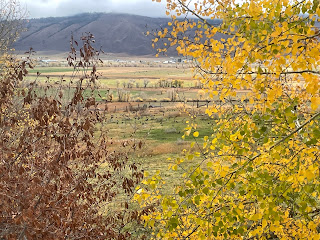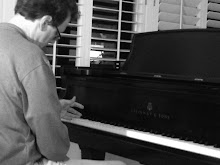Liszt Wiegenlied S. 198
It snowed two nights ago. More snow is expected this week. It's such a pretty time of the year. I was looking out my bedroom window yesterday morning and noticed not just the leaves but all of the crows, migrating south for the winter. Nature's cycle and time continue.
I'm working on several Brahms Op 76 (but lack enough time for them), some Bach Sinfonia (all full pieces and each one a gem), and a new piece I'm writing. I somehow stumbled across this Liszt lullaby. So I decided to spend a day on it and record it, after insisting my daughter, Sabine, learn it too.
I believe the piece is Liszt's own piano transcription of his last orchestral tone poem, "Von der Wiege bis zum Grabe" ("From the Cradle to the Grave"), composed in Rome around 1881/82, near his 70th birthday. Aside from his frequent travels, including to Rome, I believe Liszt was mostly living in Weimar at the time, and possibly wrote the piano transcription there. Liszt had an accident where he fell down the stairs in a hotel in Weimar in July 1881, which dramatically impacted his health and outlook.
It's a simple piece yet shows Liszt's creative side, his unusual form, his willingness to step through unexpected chromatic modulations and harmonies, and his use of motivic fragments in place of melodies. Hints of impressionism? Most of all I love the ambiguous sense of perceived time. I can't decide if I'm in the present looking back at a remininsence or actually experiencing that same remininsence. I find myself floating between the two perspectives. Similarly, the close of the piece doesn't quite resolve the tonal ambiguity of the open, despite ending where it began, on the mediant. The last bars invert the gesture of the opening bars, 3-5-6, this time 6-5-3, with the submediant, A-minor, in focus once more. I'm reminded of migrating crows and the changing colors of the leaves.
I believe the piece is Liszt's own piano transcription of his last orchestral tone poem, "Von der Wiege bis zum Grabe" ("From the Cradle to the Grave"), composed in Rome around 1881/82, near his 70th birthday. Aside from his frequent travels, including to Rome, I believe Liszt was mostly living in Weimar at the time, and possibly wrote the piano transcription there. Liszt had an accident where he fell down the stairs in a hotel in Weimar in July 1881, which dramatically impacted his health and outlook.
It's a simple piece yet shows Liszt's creative side, his unusual form, his willingness to step through unexpected chromatic modulations and harmonies, and his use of motivic fragments in place of melodies. Hints of impressionism? Most of all I love the ambiguous sense of perceived time. I can't decide if I'm in the present looking back at a remininsence or actually experiencing that same remininsence. I find myself floating between the two perspectives. Similarly, the close of the piece doesn't quite resolve the tonal ambiguity of the open, despite ending where it began, on the mediant. The last bars invert the gesture of the opening bars, 3-5-6, this time 6-5-3, with the submediant, A-minor, in focus once more. I'm reminded of migrating crows and the changing colors of the leaves.







